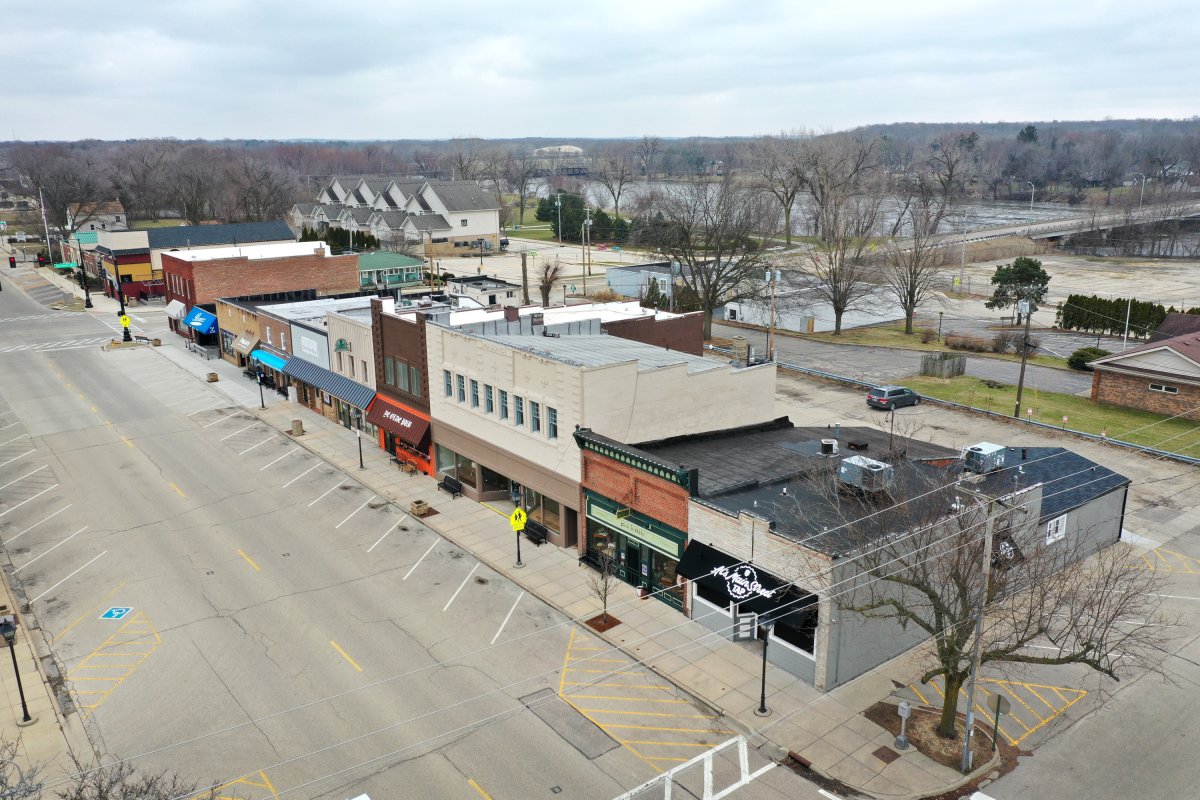Maria Tidwell, a code enforcer in Gladewater, Texas, is the kind of civil servant any municipality would want. Energetic and proactive, she began looking for ways to improve the town as soon as she was hired in 2009. It didn't take long.
"We need everything," Tidwell shared—new roads, sewers, and water lines, but especially new sidewalks (the town has none), so children will no longer have to walk in the streets to reach school.
Fortunately, billions of dollars in federal infrastructure aid are now available. But Gladewater, like small and medium-size towns nationwide, had no experience applying for such grants. "I felt instantly discouraged and overwhelmed," Tidwell recalled.
She has company across the country. Without help from someone somewhere, countless projects could go unfunded or untold, wasting prime opportunities to address smaller cities' pressing needs in transportation, climate, flood mitigation, rails, broadband, and more. These mayors have the same big infrastructure dreams as their large-city counterparts, but not the same resources.
President Joe Biden and the 117th Congress should be commended for making historic investment available through the Bipartisan Infrastructure Law, American Rescue Plan, and the Inflation Reduction Act. But it should also be a wakeup call to those who care about the health of small and mid-size cities—a critical source of American talent and culture—that many lack the capacity to meaningfully apply for these dollars. We have become too comfortable with local governments without the means to move us forward, from the bottom up.
We recognized that the enormity of the task—delivering the needed technical support to thousands of communities—required a coordinated collective. Bloomberg Philanthropies, the effort's center of gravity, alongside the National League of Cities and other organizations, have stepped up. Last year, we formed the Local Infrastructure Hub, a civil-society consortium that is coaching 1,200 plus mostly small and mid-sized municipalities in the art and science of drawing down federal dollars. These efforts include webinars with infrastructure leaders, strategy-sharing from big cities, and months-long grant-writing bootcamps that train officials needing help most: those with 150,000 or fewer residents.
The program is working. More than 3,200 local officials, including 276 mayors, have engaged in technical support sessions. Participating municipalities have already received over $700 million in funding. Of the nearly 700 localities getting support through the bootcamps, 77 percent have fewer than 50,000 residents, and 42 percent have fewer than 10,000.
The need is urgent. Many participants represent towns left behind: divorced from the new economy, most have poverty rates exceeding the national average. Few have grant offices or familiarity with the departments doling money out. They may not even know about opportunities from agencies in Washington they've never dealt with.

Gladewater is typical. Tidwell is trained as a code enforcer, not a grant writer. The rules, constraints, and idiosyncrasies of applying initially seemed too daunting. But after attending the bootcamps, she said, "I got real excited. I thought, 'I can do this!'"
It was similar in Corrales, N.M., a village of 8,300 people north of Albuquerque. With most residents on well water and septic systems, Corrales needs robust facilities to fight fires, protect groundwater, and provide drinking supplies. Yet the only staffer positioned to pursue federal grants is Tanya Lattin, the deputy fire chief.
Hesitant at first, Lattin said the bootcamp experience "has given me the confidence to write federal grants I wouldn't have tried before."
Lynwood, Ill., 30 miles south of downtown Chicago, needs more charging stations for electric vehicles, a federal priority. There are only five within 10 miles of the village center. Seeking $750,000 in charging and fueling grants, Lynwood enrolled in our bootcamps. "It gave us a lot of good ideas on writing a strong grant narrative," said Shelia Edwards, Lynwood's grants resource coordinator.
These towns aren't guaranteed to win the funds they're seeking. But their officials, like the thousand-plus participating, now have the knowledge to pursue additional opportunities in the coming months and years. Meanwhile, others are already benefiting. For instance, Clarkston, Ga.—population roughly 12,000—received $1 million in safe street grants after working more than three months with our team.
This is what the Local Infrastructure Hub is designed to do. By bringing together funders (including Ballmer Group, Emerson Collective, Ford Foundation, and The Kresge Foundation); government agencies (including U.S. departments of transportation and energy); and specialists (including Results for America, U.S. Conference of Mayors, and Delivery Associates); we are enabling municipalities to regularly connect and discuss infrastructure challenges and opportunities with the experts they need.
The Local Infrastructure Hub won't solve the challenge of right-sizing municipalities to fit the many problems they face. But it is helping communities with big dreams to have a fighting chance to compete for the extraordinary federal resources available—and build stronger localities for tomorrow.
James Anderson leads the Government Innovation Program at Bloomberg Philanthropies.
Clarence E. Anthony is CEO and executive director at the National League of Cities.
The views expressed in this article are the writers' own.
Uncommon Knowledge
Newsweek is committed to challenging conventional wisdom and finding connections in the search for common ground.
Newsweek is committed to challenging conventional wisdom and finding connections in the search for common ground.
About the writer
To read how Newsweek uses AI as a newsroom tool, Click here.








